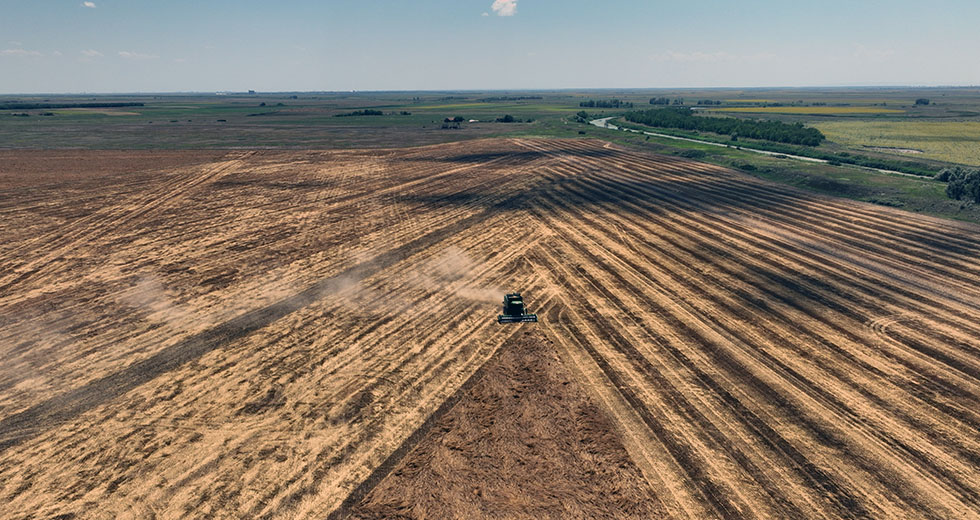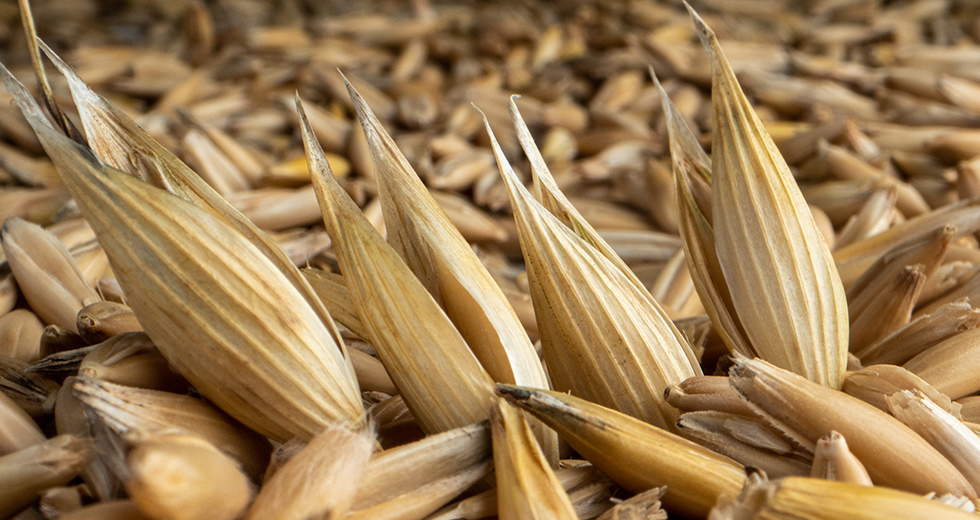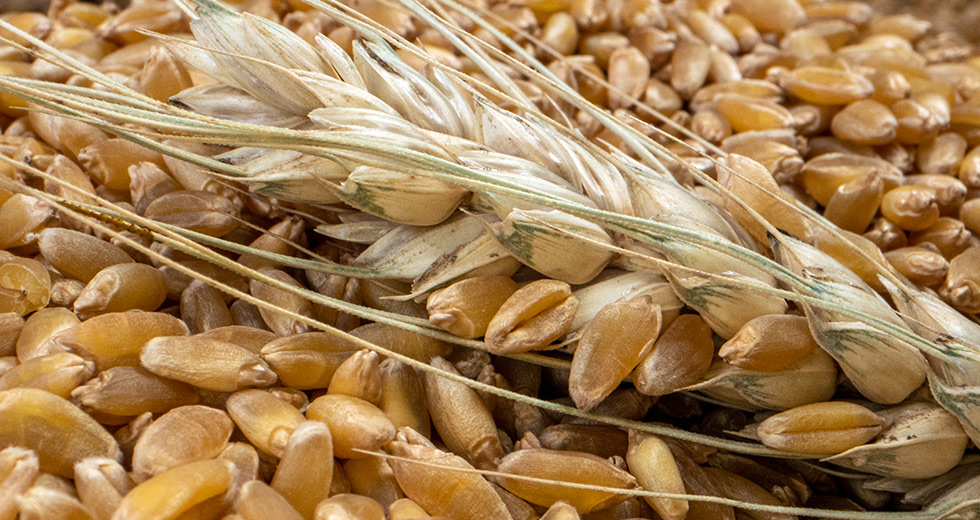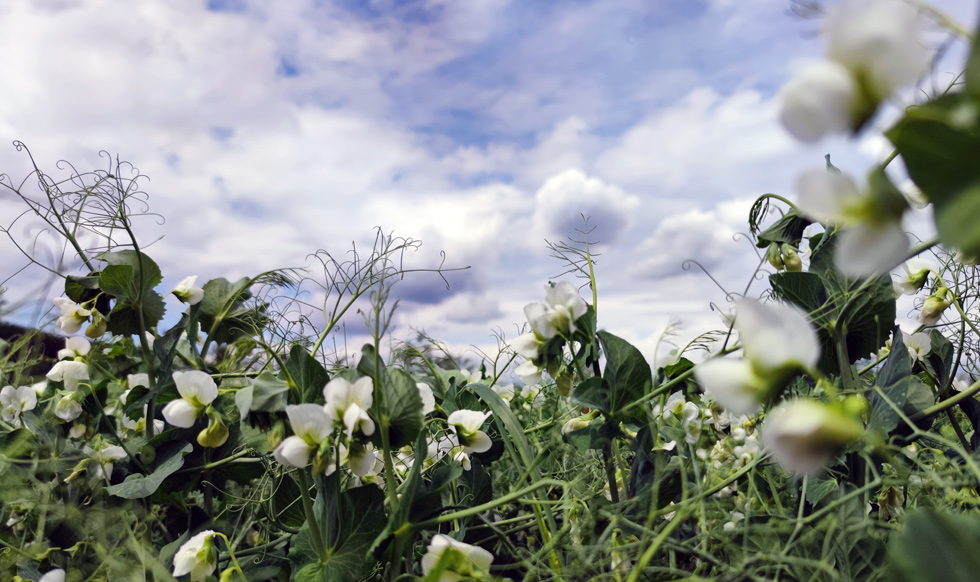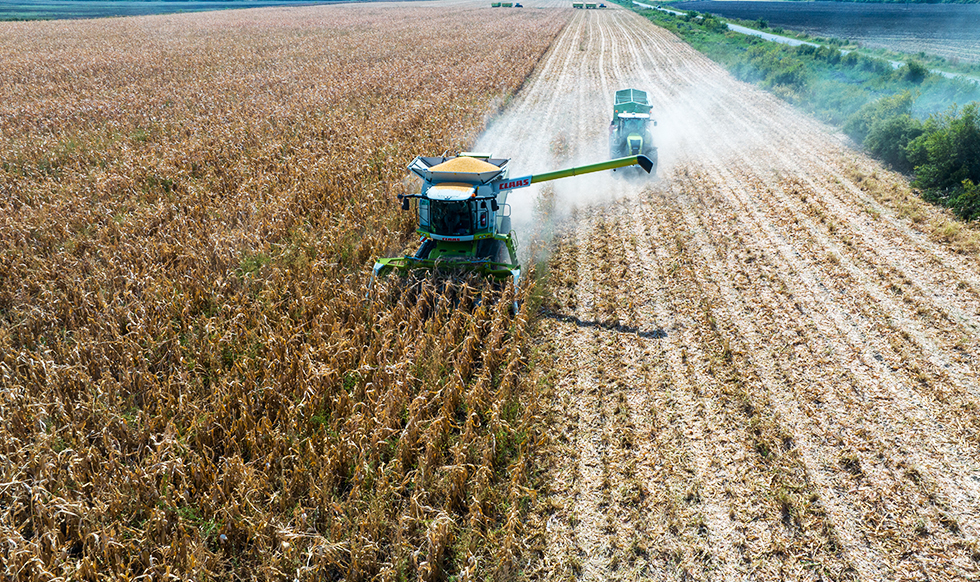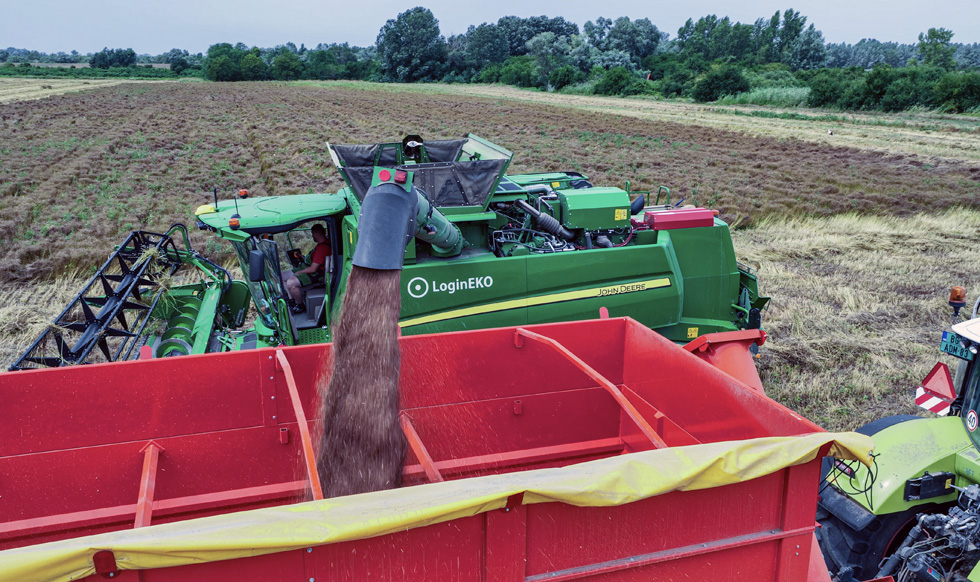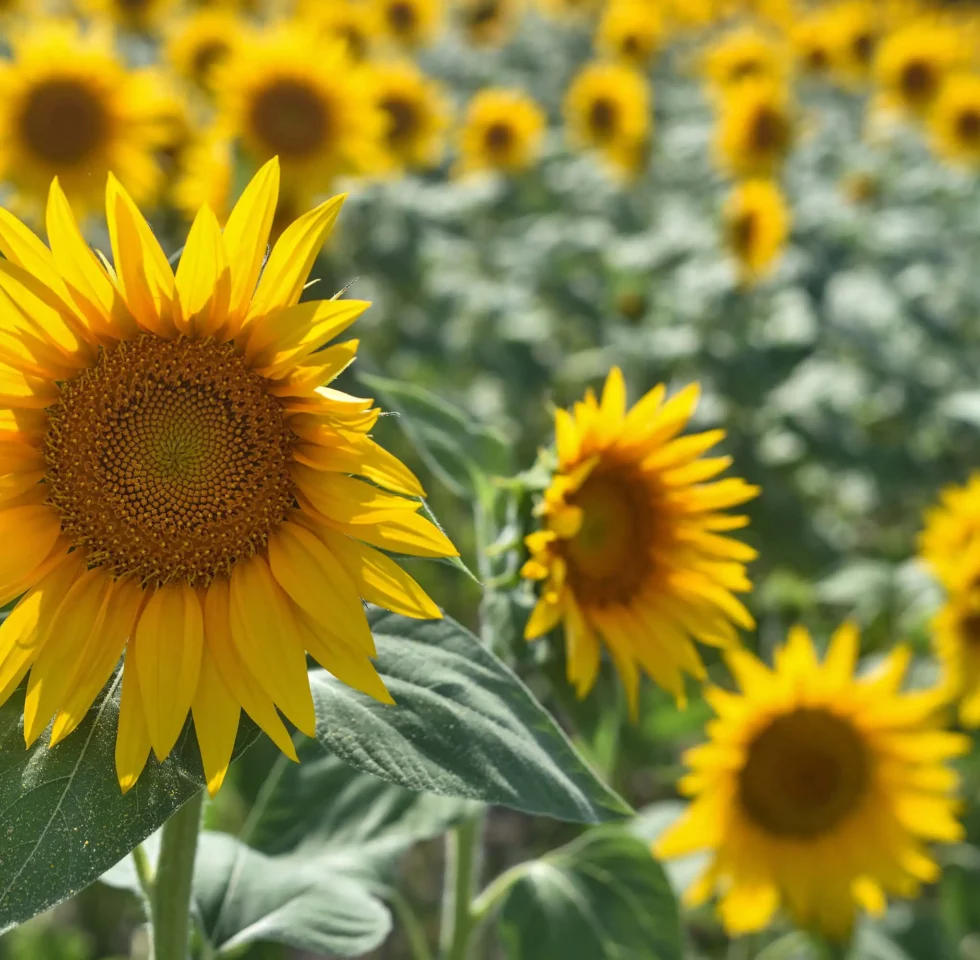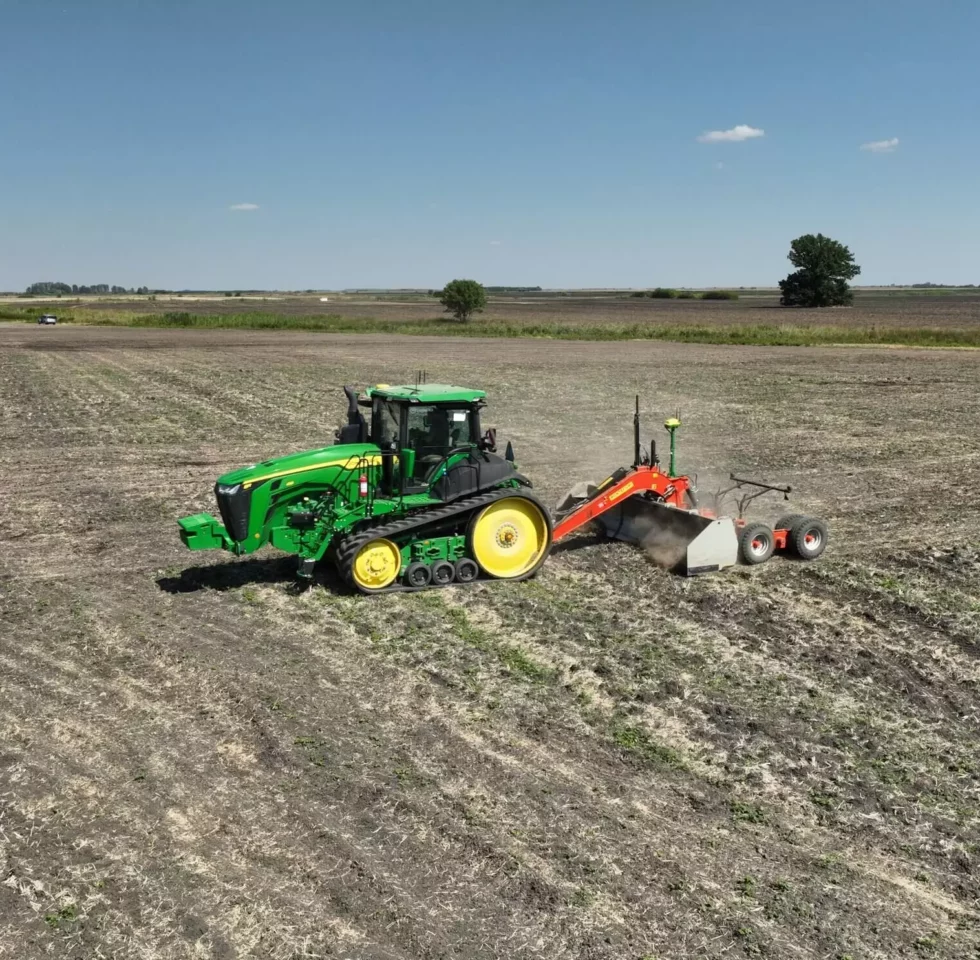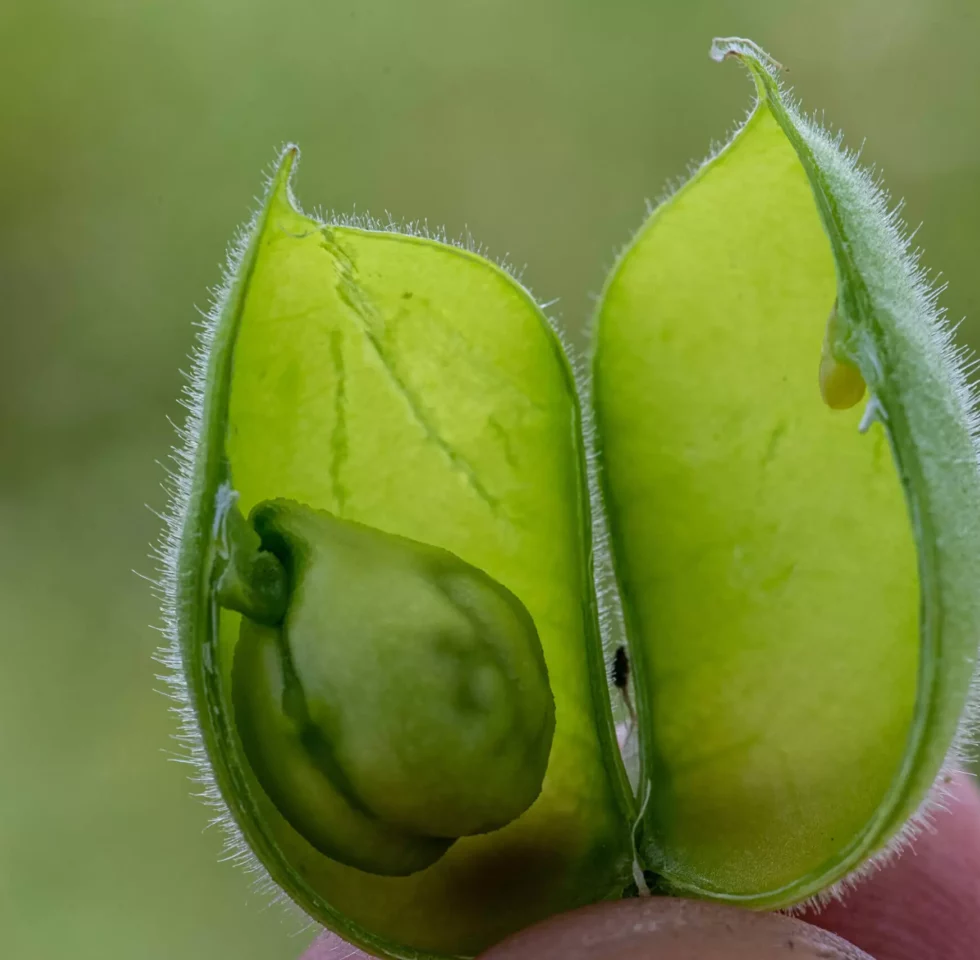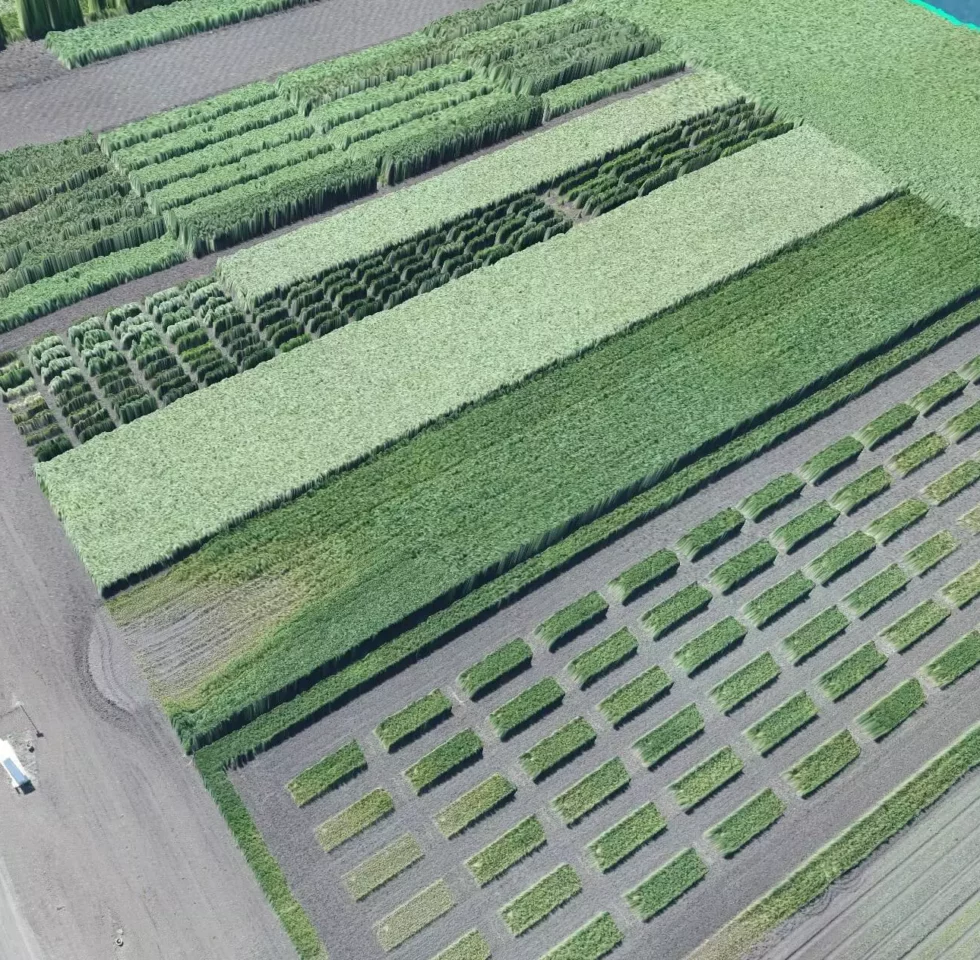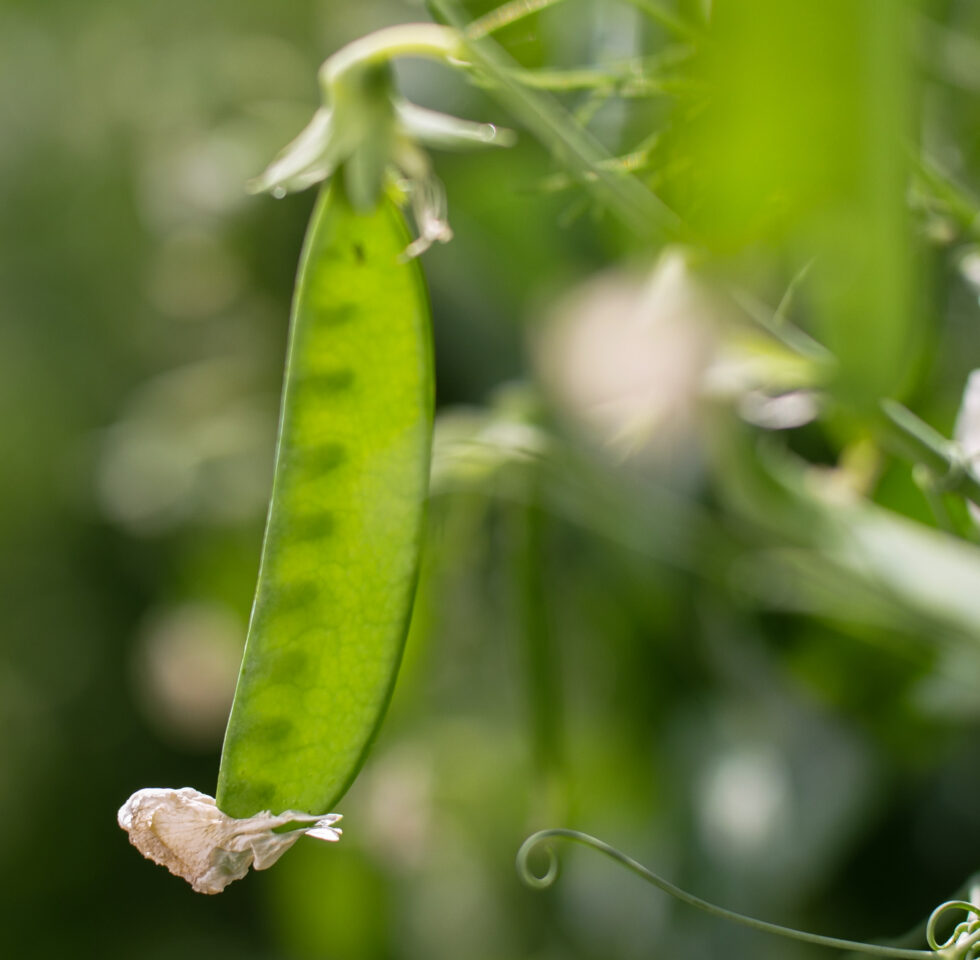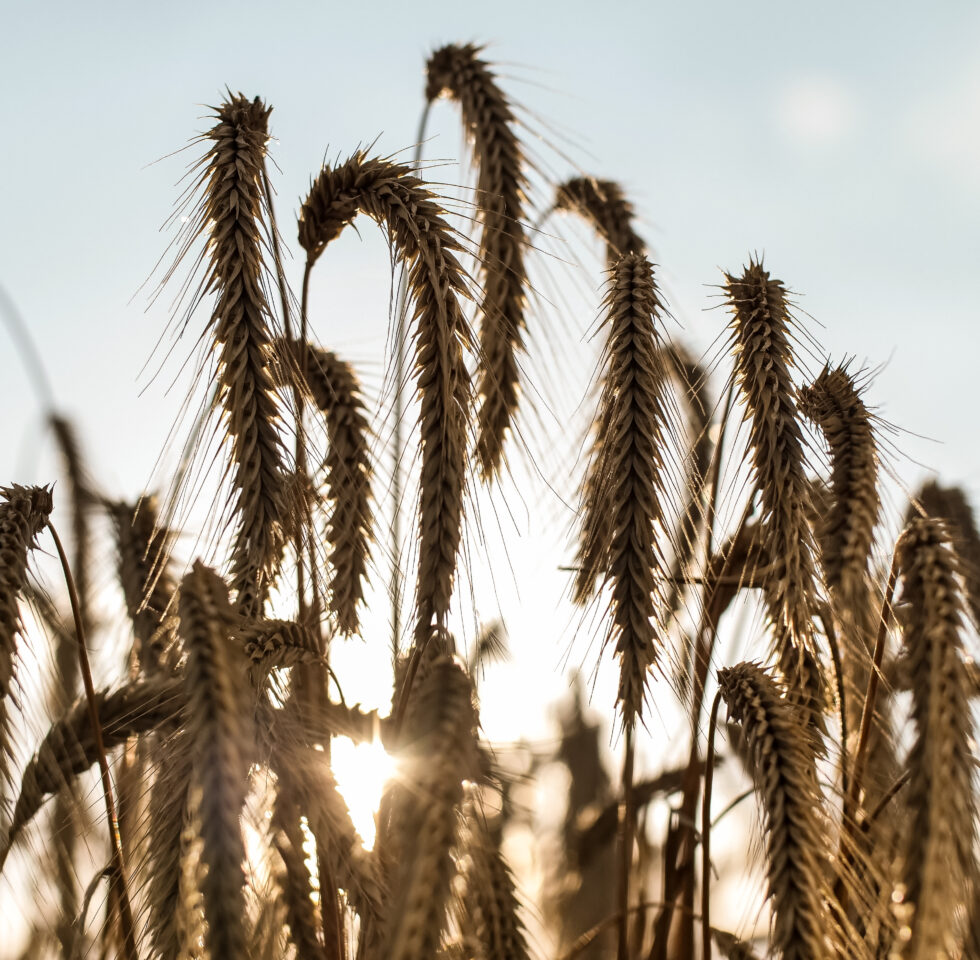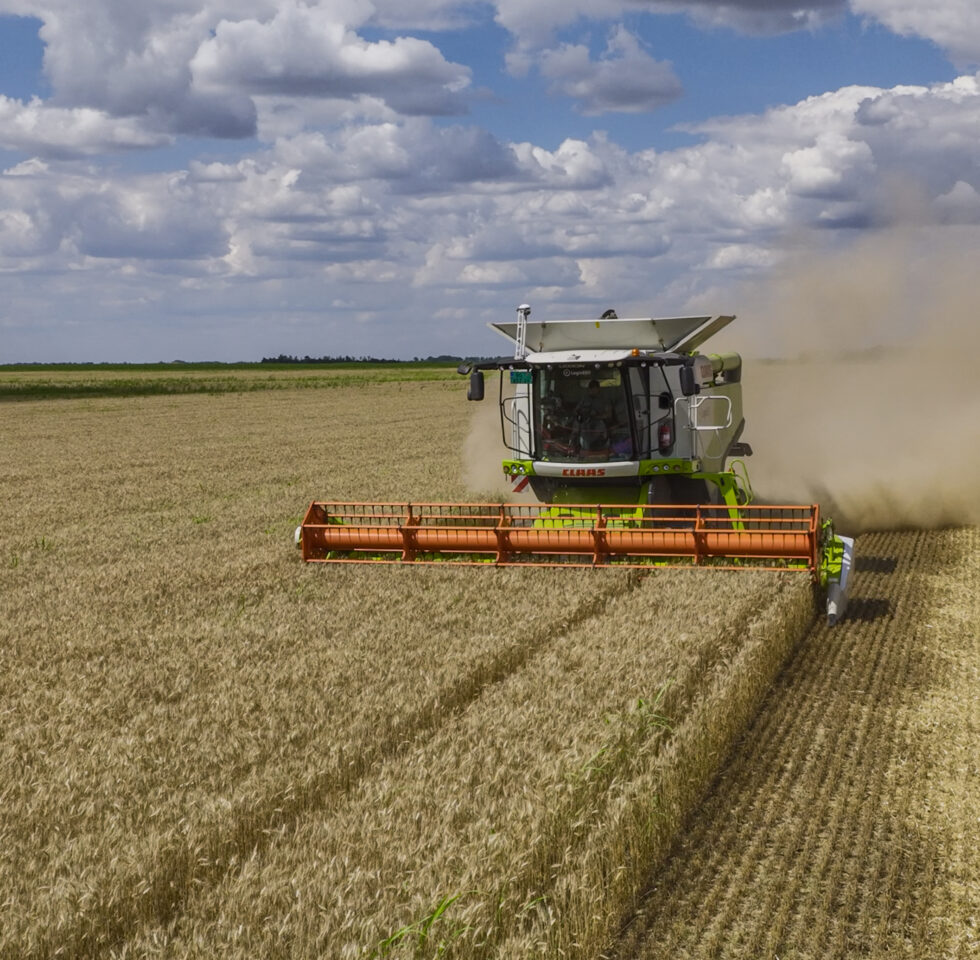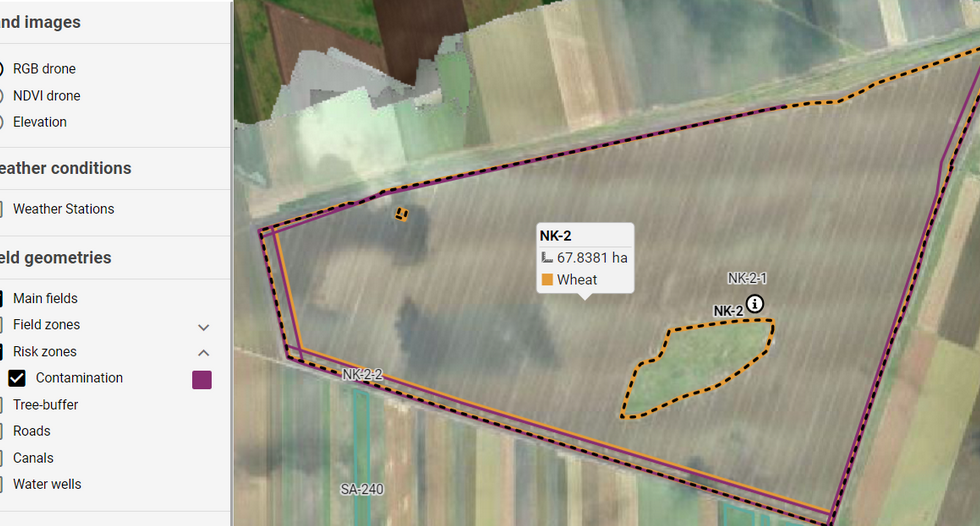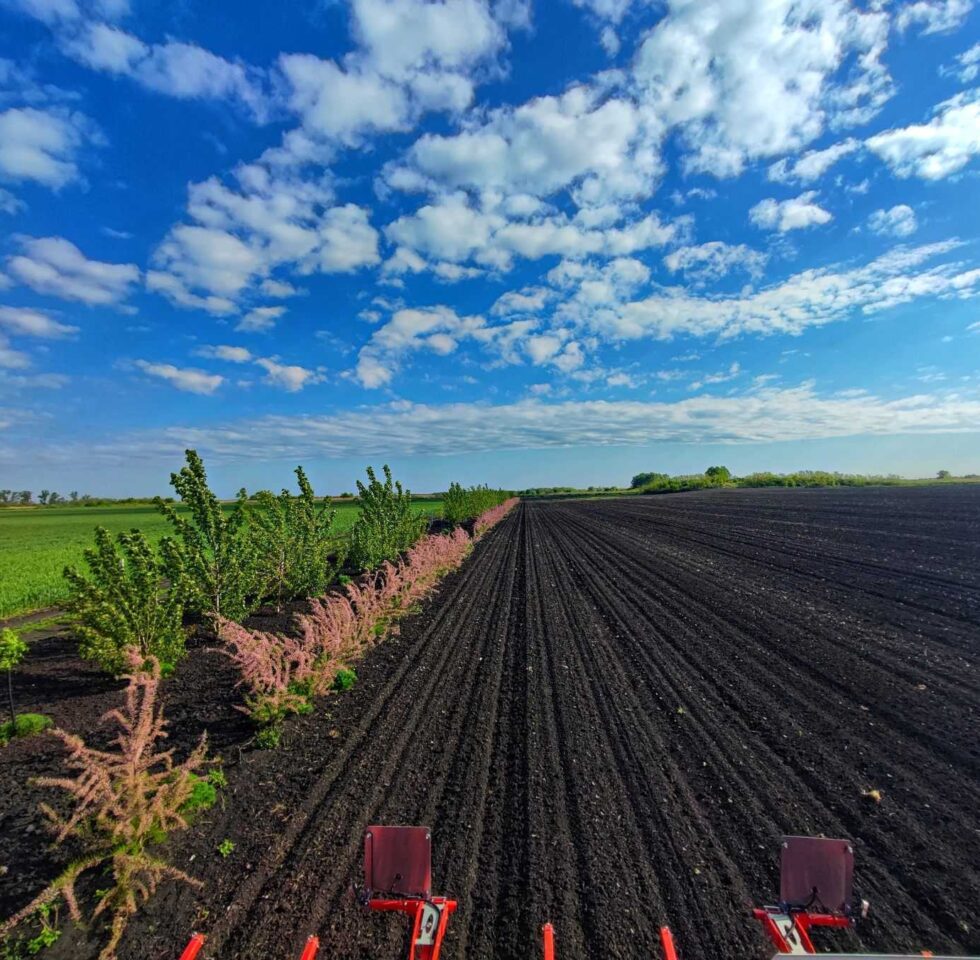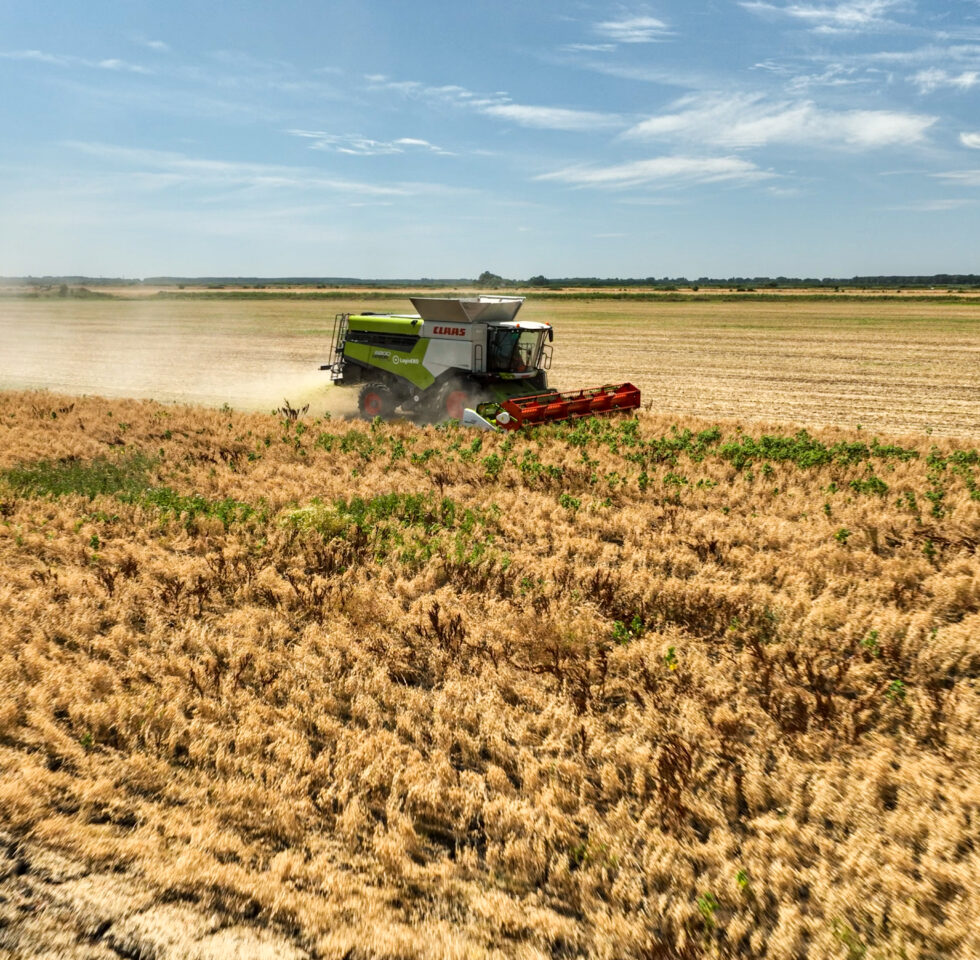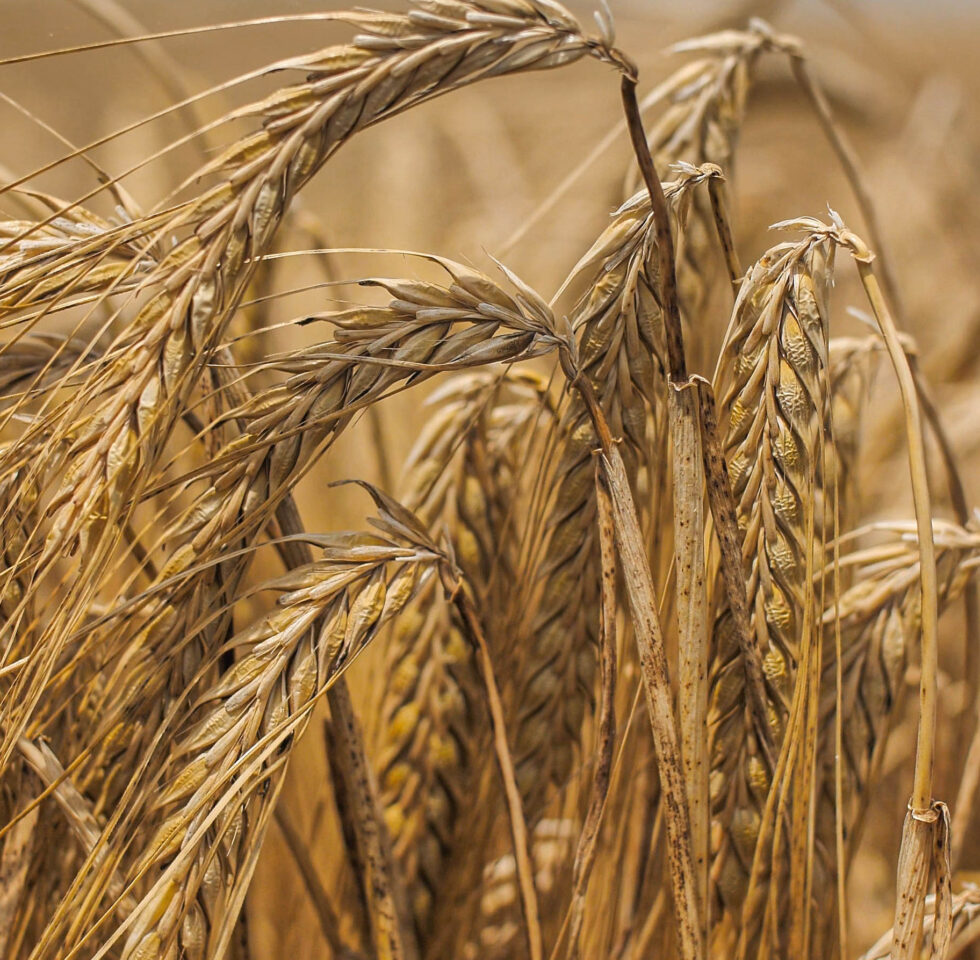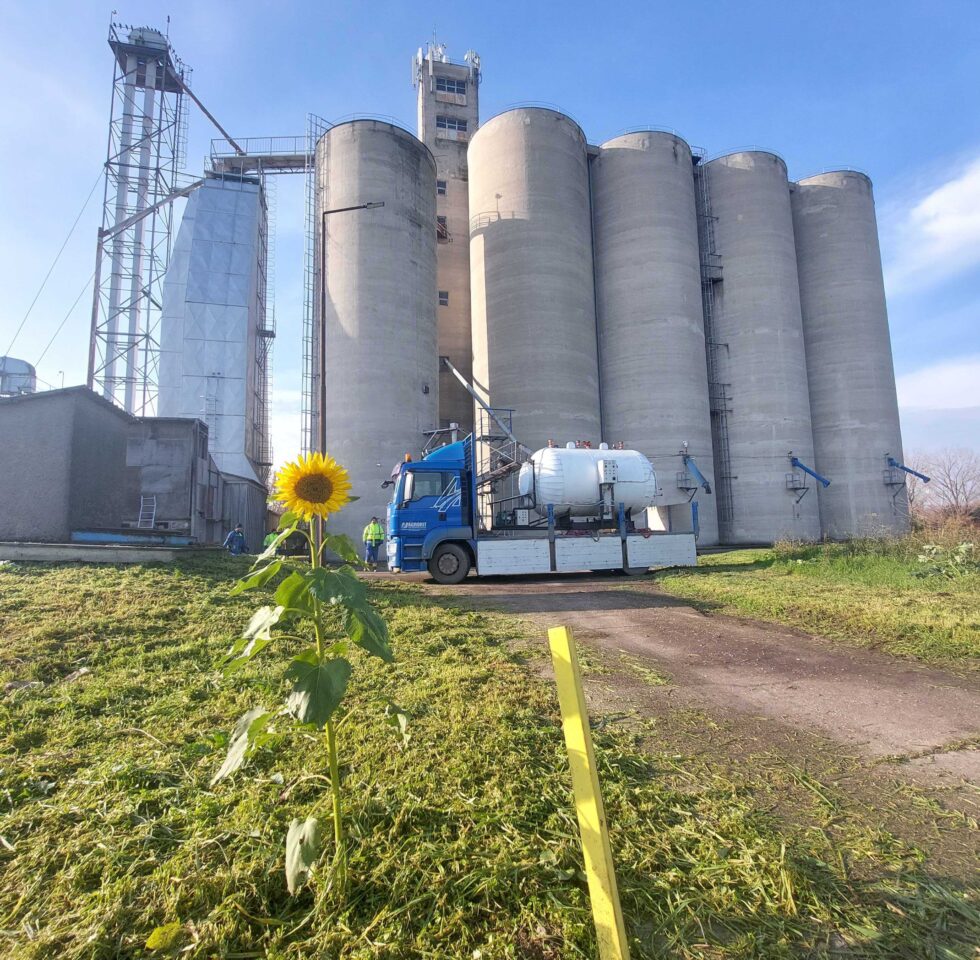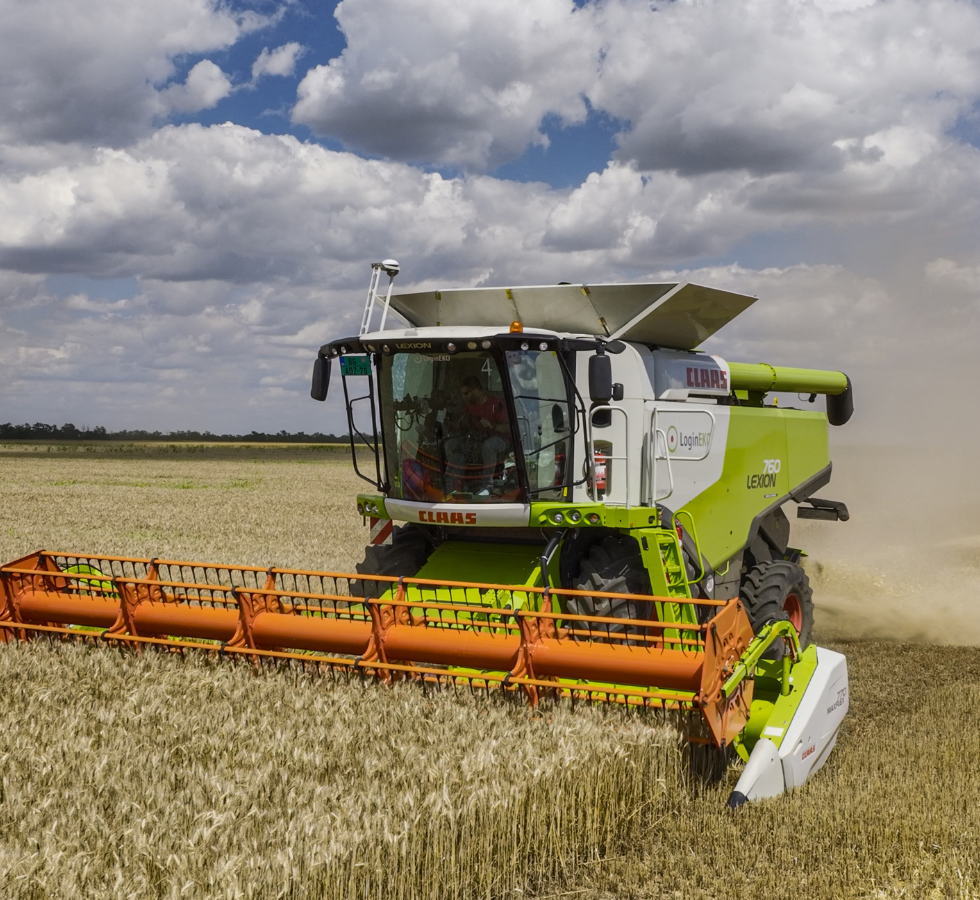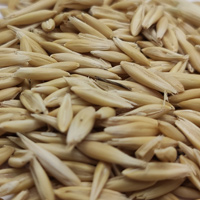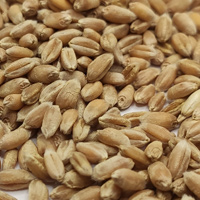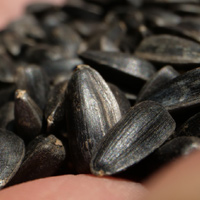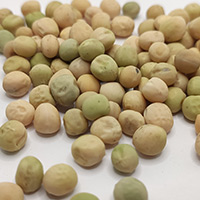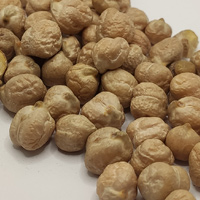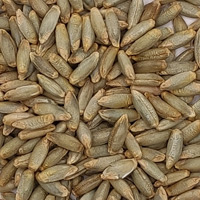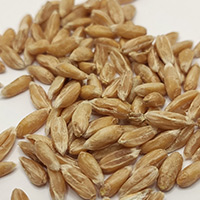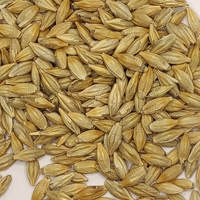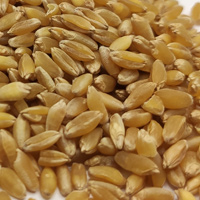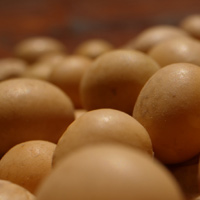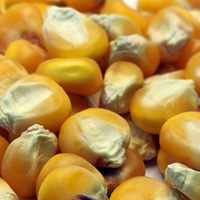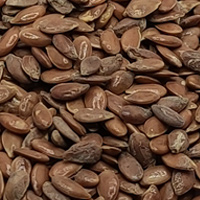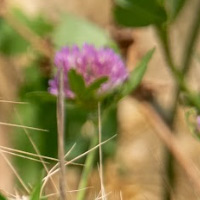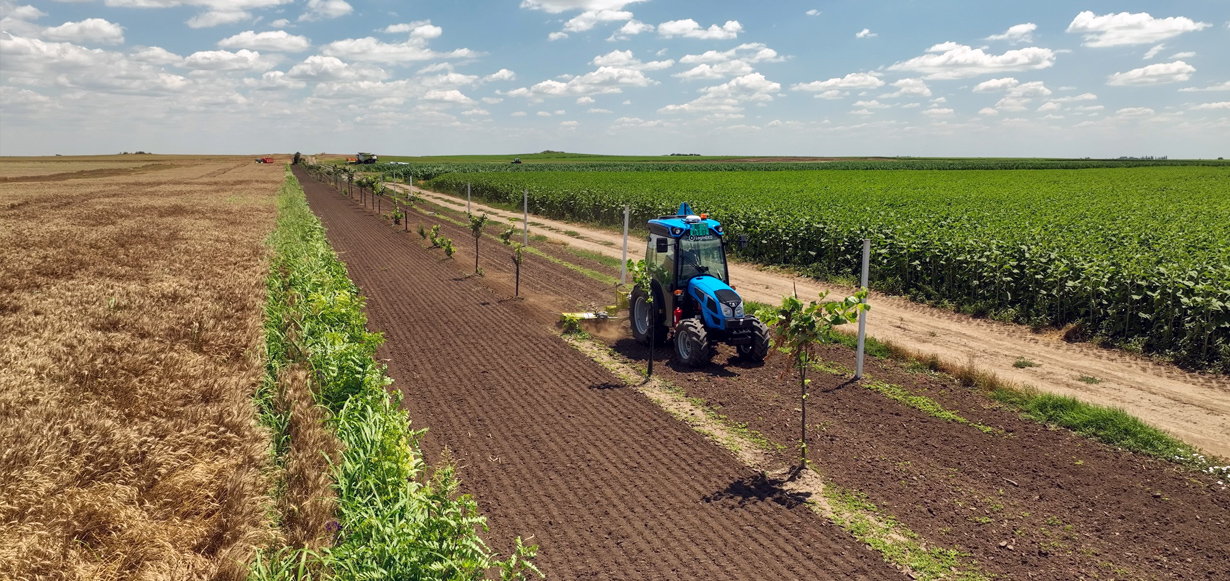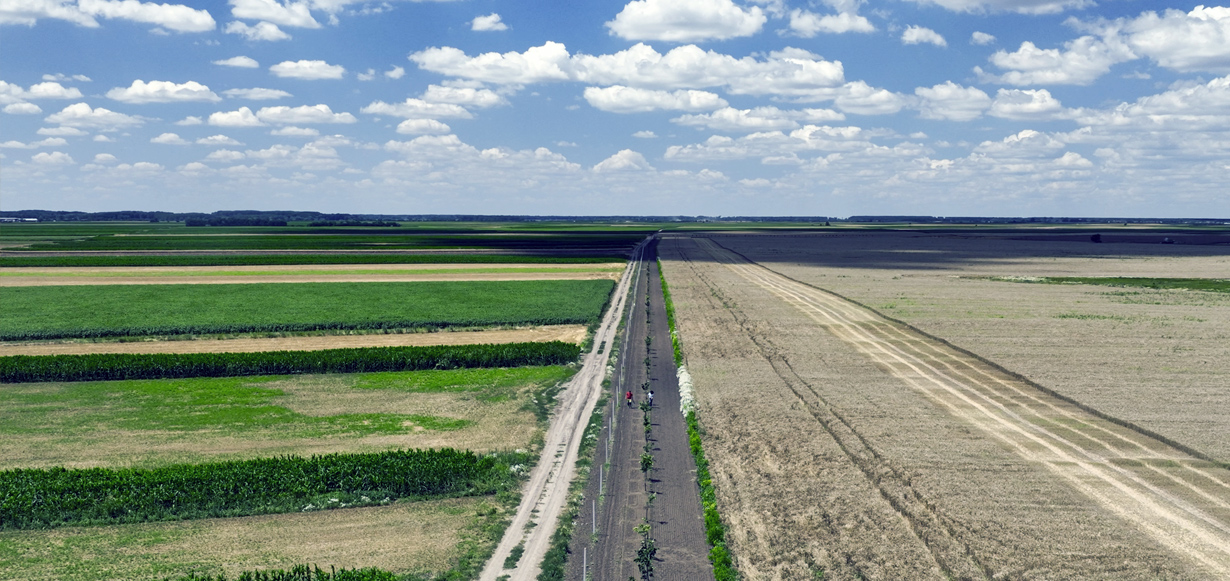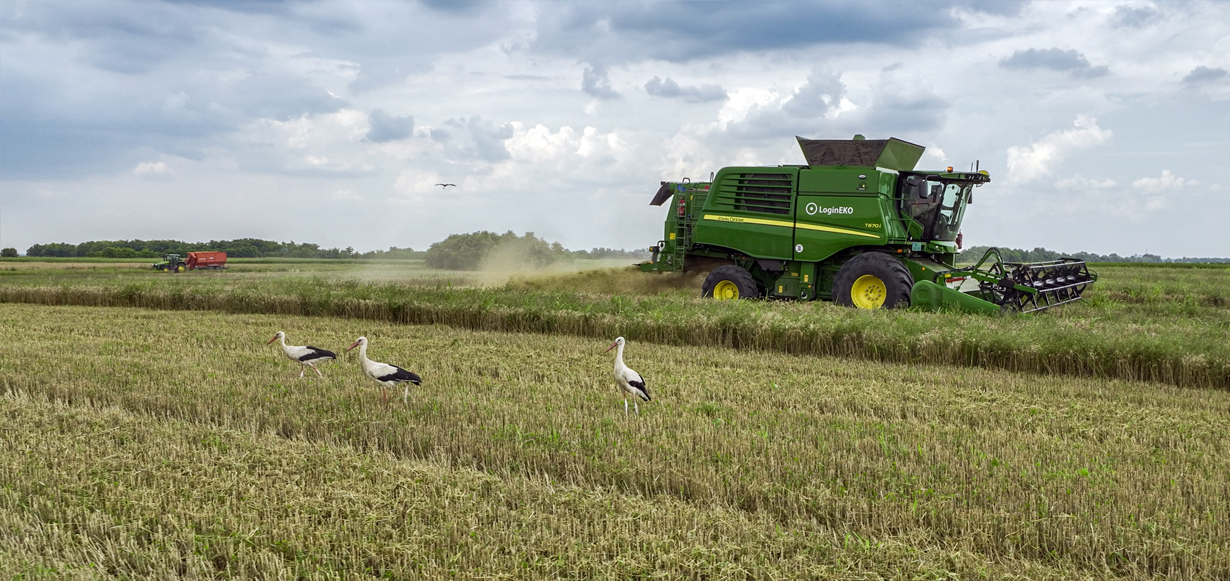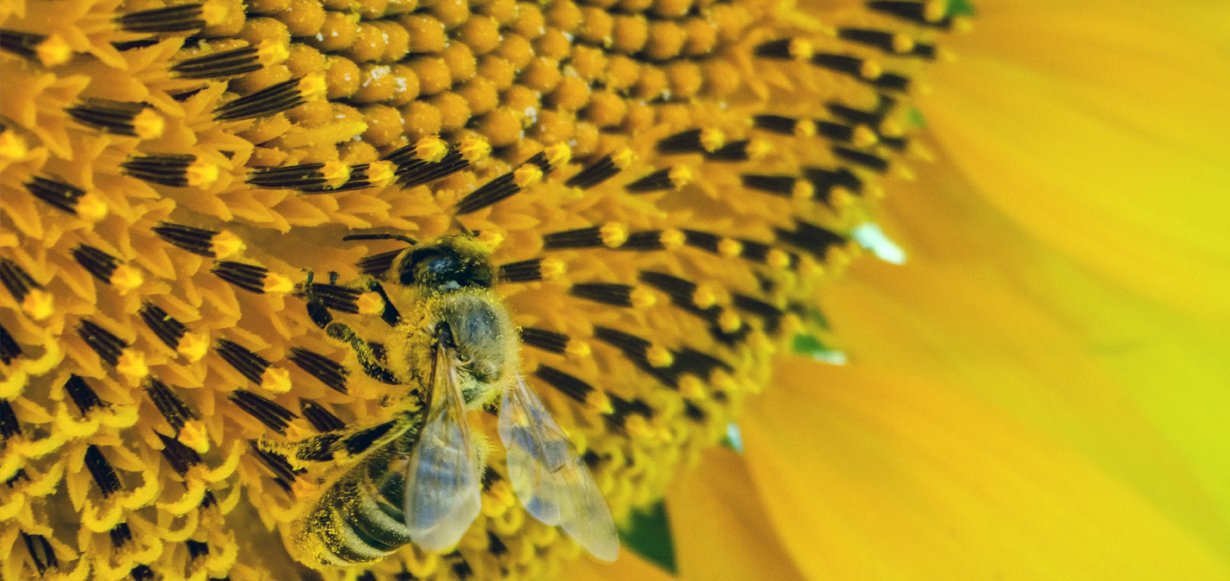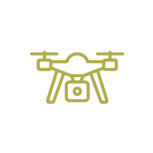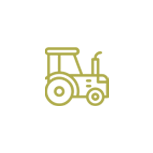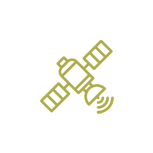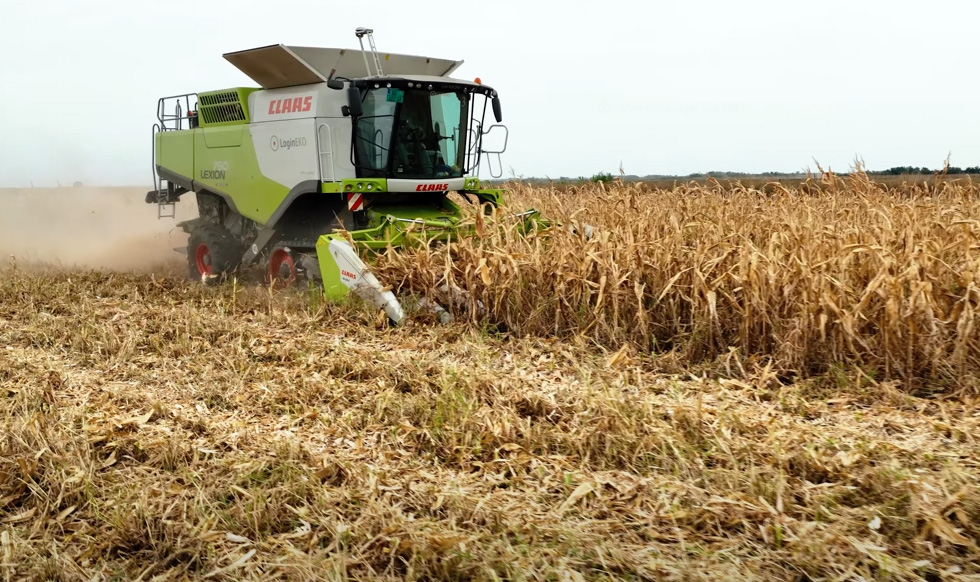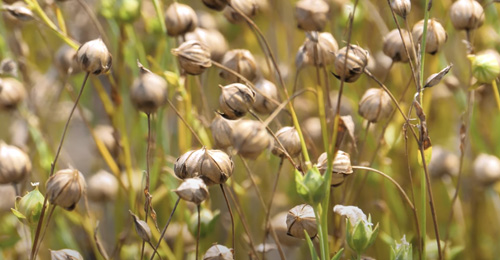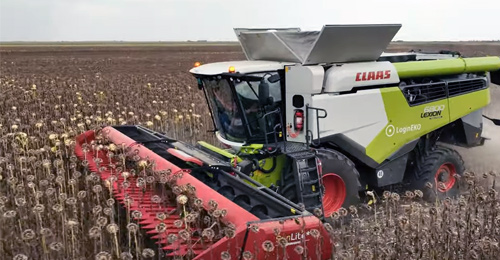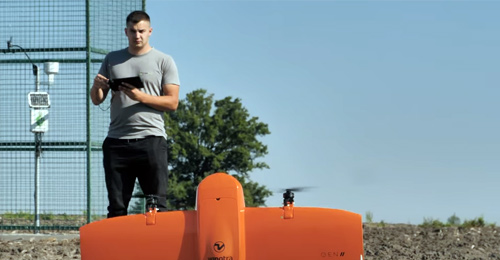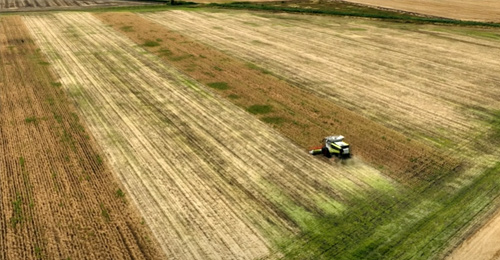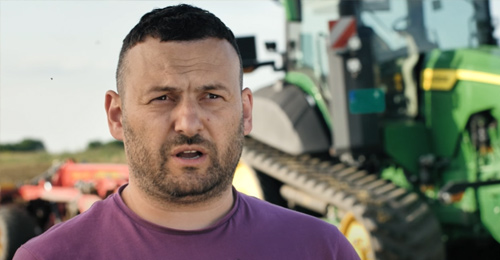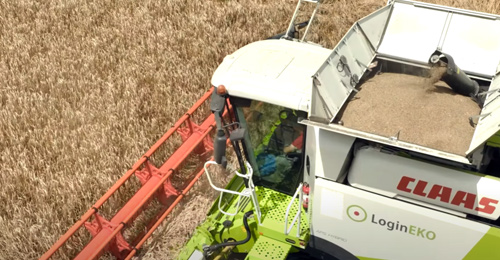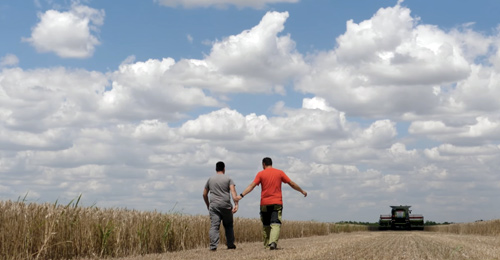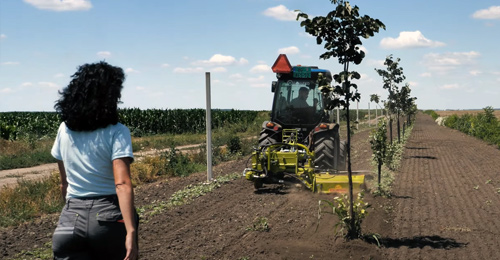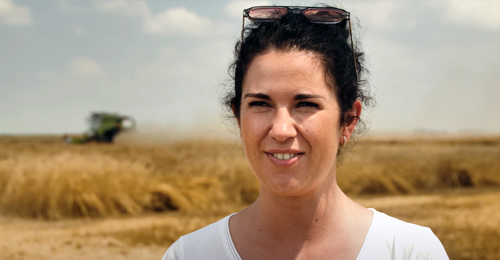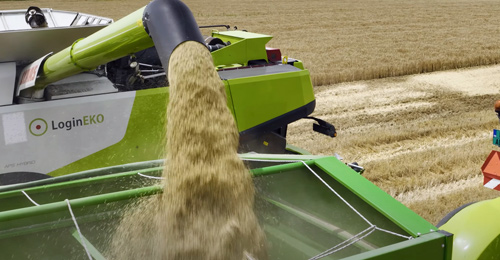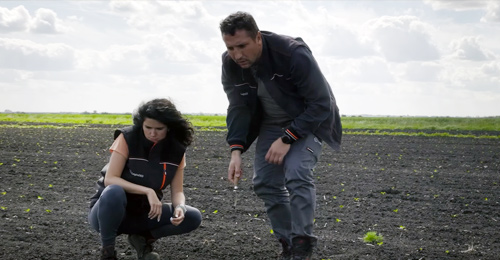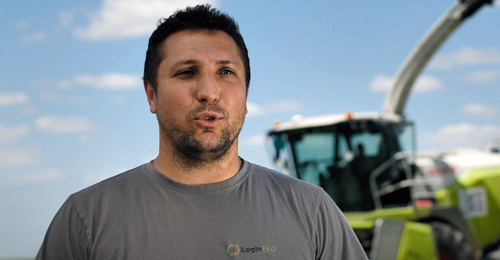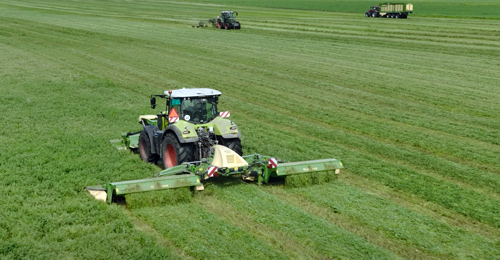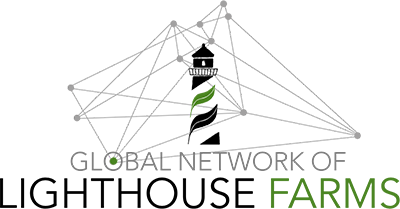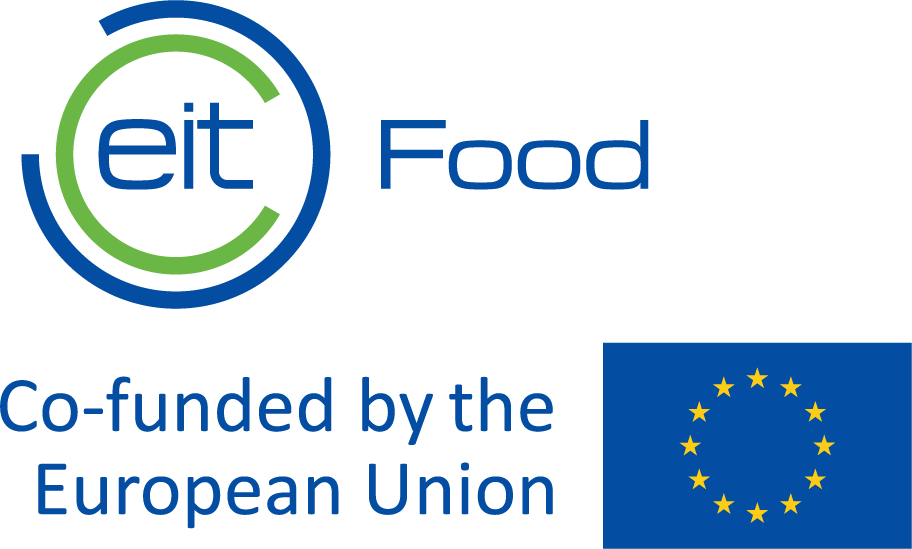
Welcome to our 3,700 ha organically-certified farm! Our nurturing ground for this unique, sustainable, and organic agricultural approach is dedicated to cereals, legume-based crops, sunflowers, flax, alfalfa, and clovers.
6,000 tons of organically produced crops annually demonstrates we are on the right track.
MULTI-YEAR CROP ROTATION
At the heart of our innovative approach is the practice of a multi-year crop rotation, a strategy designed to enrich the soil, reduce weeds, pests and diseases, and increase overall farm productivity.
Currently, we have implemented two primary cycles of crop rotation on a large-scale: a 3-year and a 4-year rotation, with crops arranged in various orders to maximize their benefits.
3-YEAR CROP ROTATION
Legumes serve a dual purpose in our crop rotation: they can be used either as green manure or as a harvestable crop.
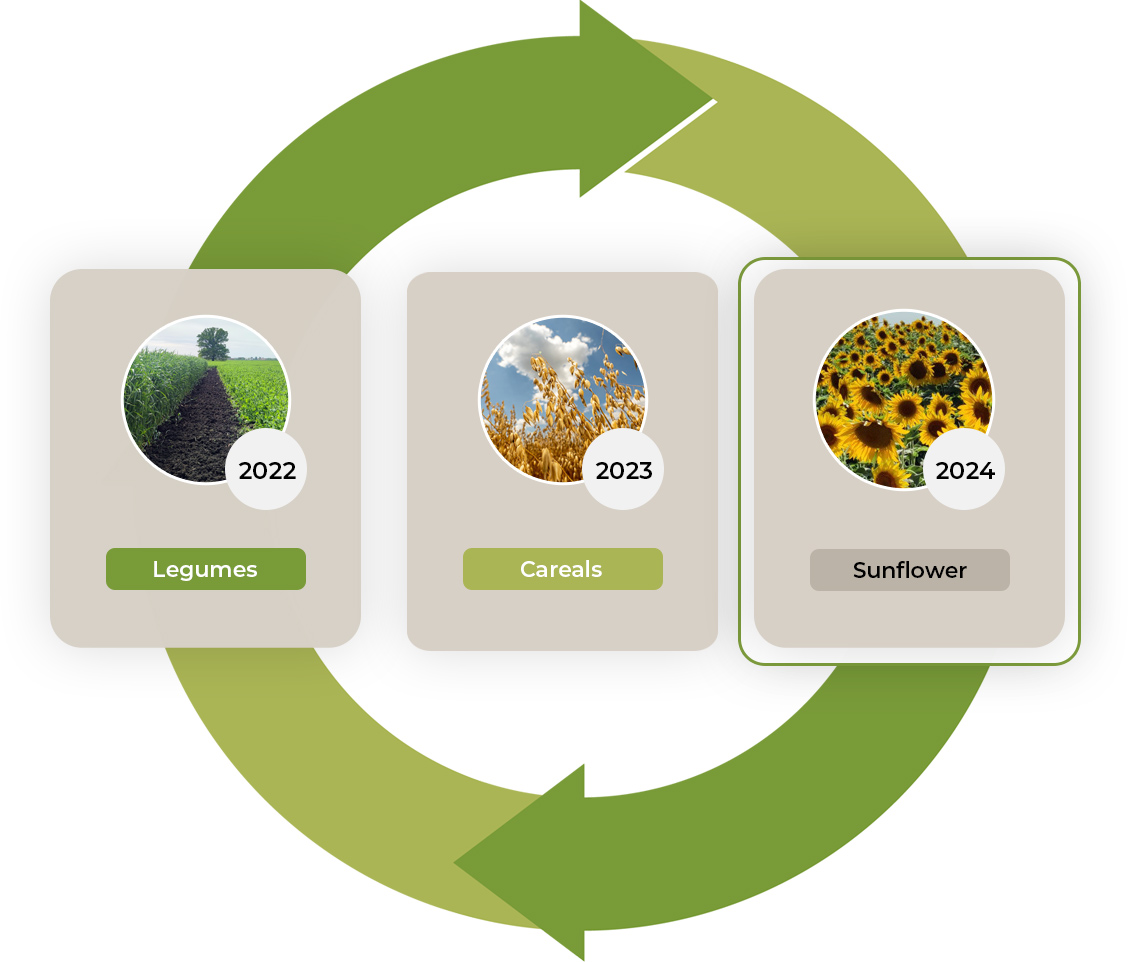
4-YEAR CROP ROTATION
Through our large-scale field production practices, we’ve gained valuable insights into utilizing various crops for green manure, as well as the use of legumes within multi-year crop rotation.
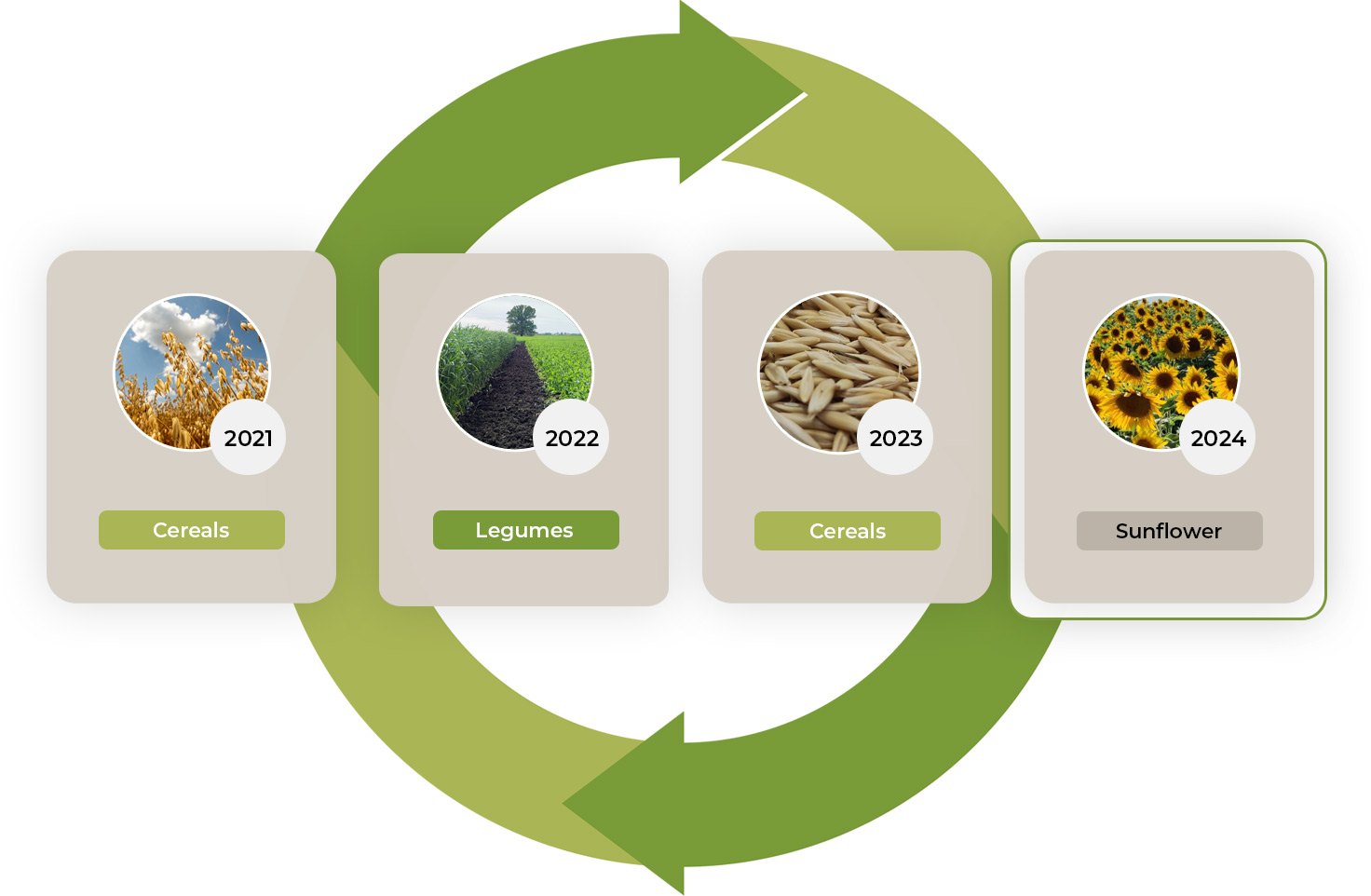
Our long-term goal is to achieve 5- and 6-year crop rotations, following comprehensive research.
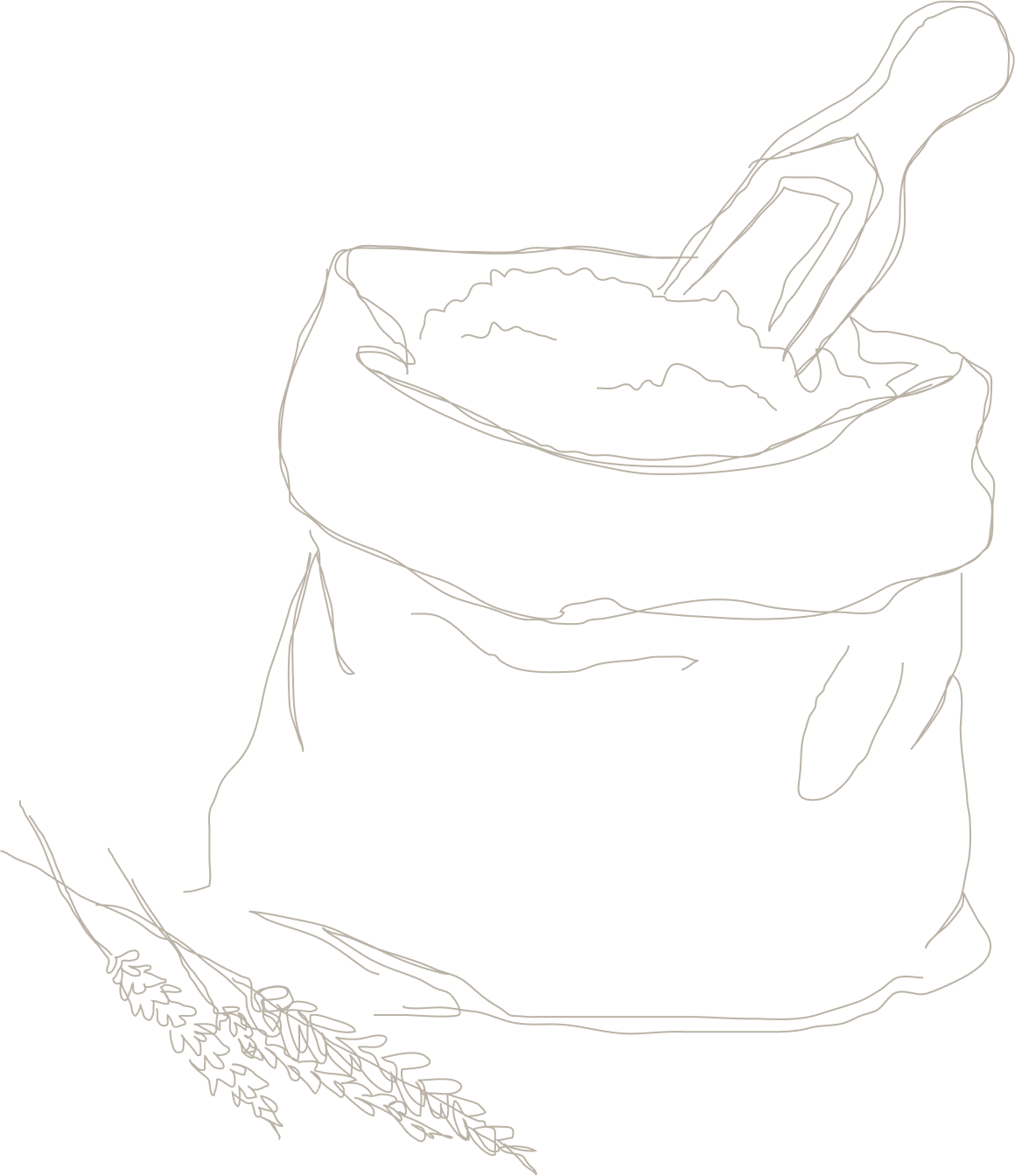
HARNESSING LEGUME POWER
Legumes are crucial in our farming model because of their remarkable ability to convert atmospheric nitrogen into a plant-friendly form that enriches the soil with essential nutrients in an eco-friendly manner.
Central to our farming ethos is the concept of self-sustainability. We generate all our nitrogen fertilizer onsite, and preserve high-quality seeds harvested directly from our fields.
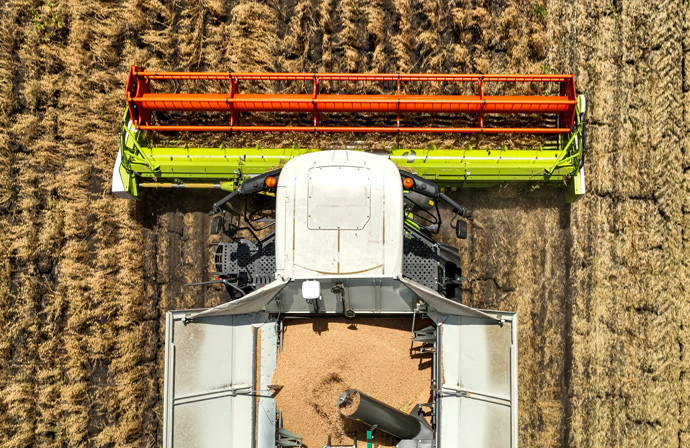
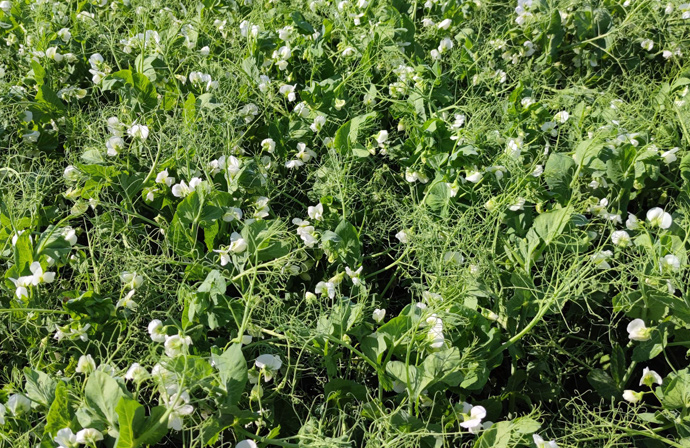
BUFFER ZONES
Buffer zones act as nature’s fortresses, safeguarding our organic farming areas from potential contamination that may arise from nearby conventional agricultural practices.
These protective barriers play a crucial role in preserving the integrity of our organic produce. In total, we manage a vast expanse of over 14 hectares of buffer zones, stretching across more than 20 kilometers. These buffer zones significantly reduce the risk of contamination, enhance biodiversity, and protect against erosion on over 560 ha of our organically-certified land. This accounts for 17% of our total arable land.
Buffer zones receive dedicated care and attention throughout the year. Currently, we monitor and maintain a network of 36 such areas, meticulously curating the plant species to achieve our objectives.
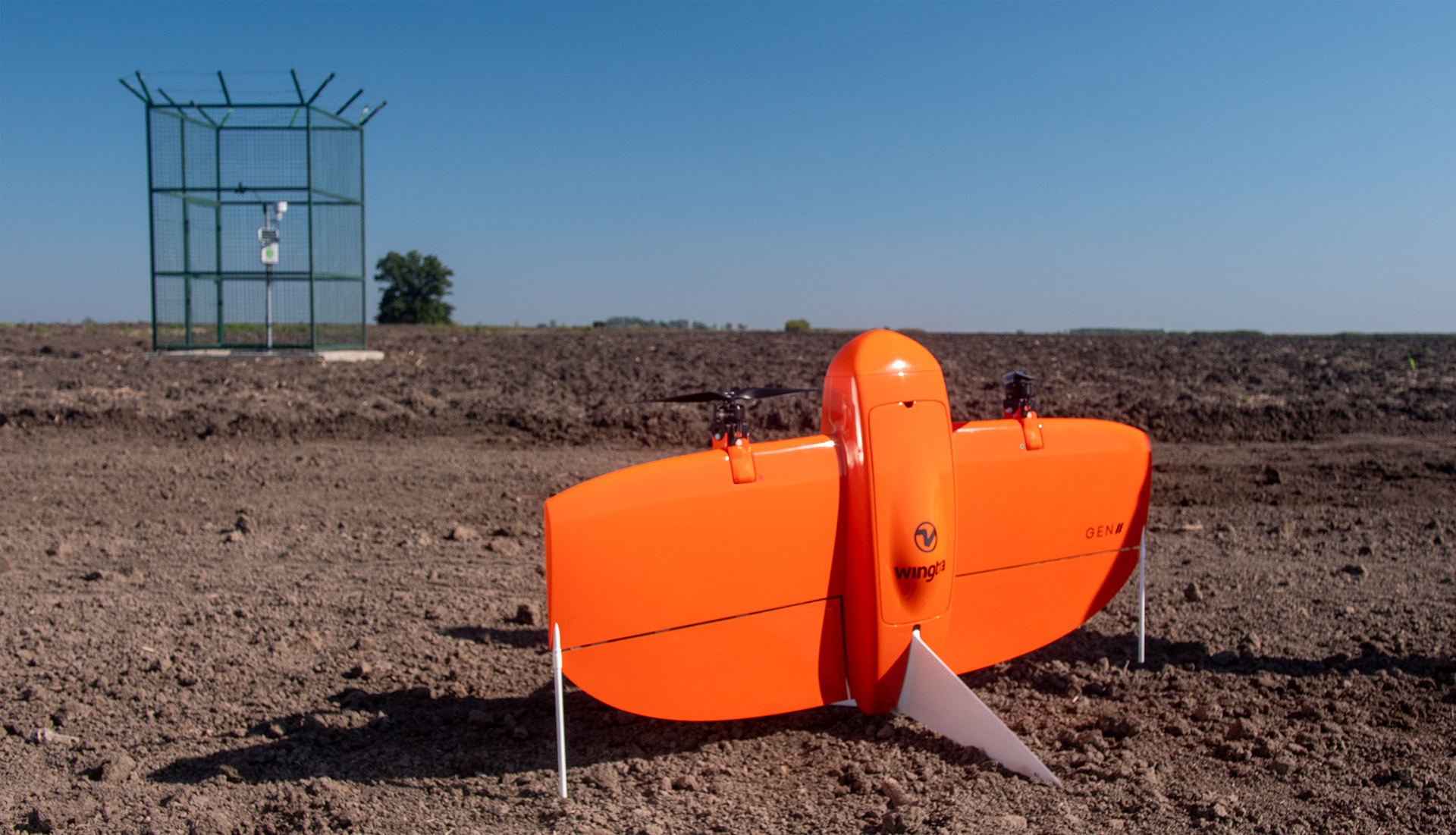
PRECISION FARMING
We’re harnessing the latest in agricultural technology. We adopt data-driven precision farming methods, employing advanced technologies like:
LEVERAGING BIG DATA AND FARMING SOFTWARE
These tools allow us to carefully monitor our crops, manage our resources efficiently, and optimize soil, water, and fertilizer usage. We leverage the power of big data to advance farm management software development that ensures traceability and sustainability, from our fields through the food production process, and to your table.

PLANT-BASED FARMING FOR SUSTAINABLE FOOD PRODUCTION
Our farming operation is entirely livestock-free. We don’t use animal-based manure, actively reducing greenhouse gas emissions and minimizing soil and water degradation. This approach enables us to tackle some of the most pressing environmental challenges. We are showing that efficient food production while taking care of our environment is possible.
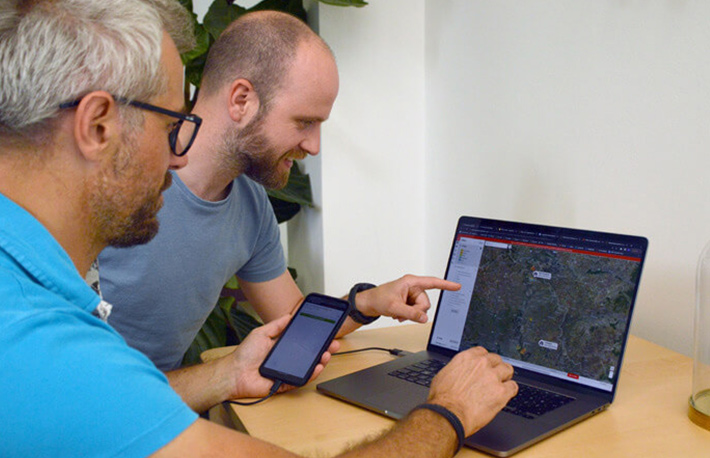
Our Videos

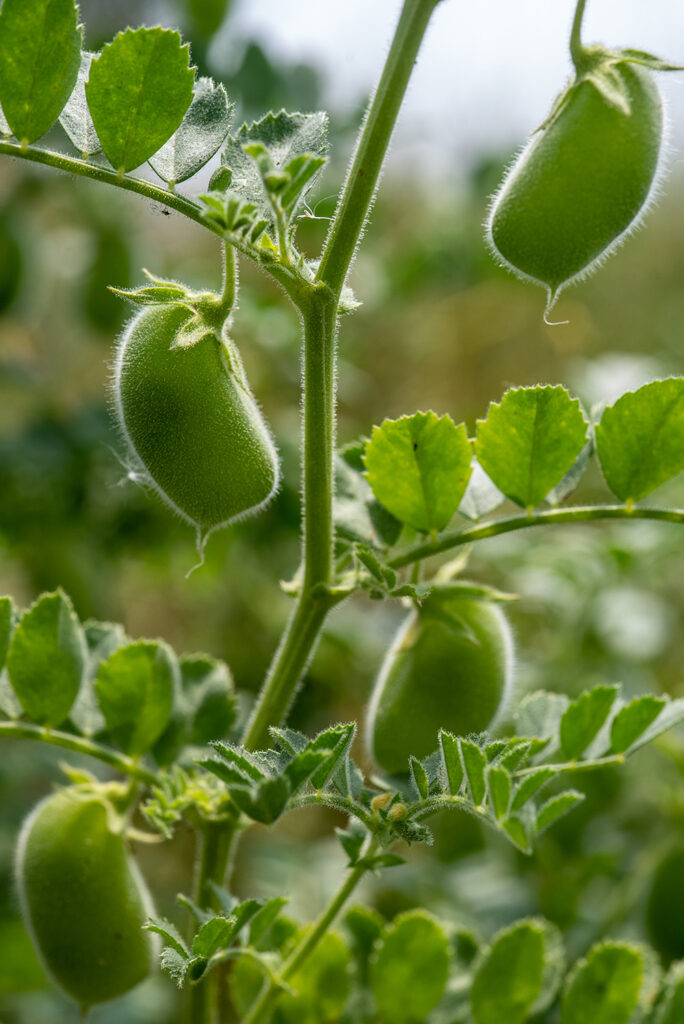
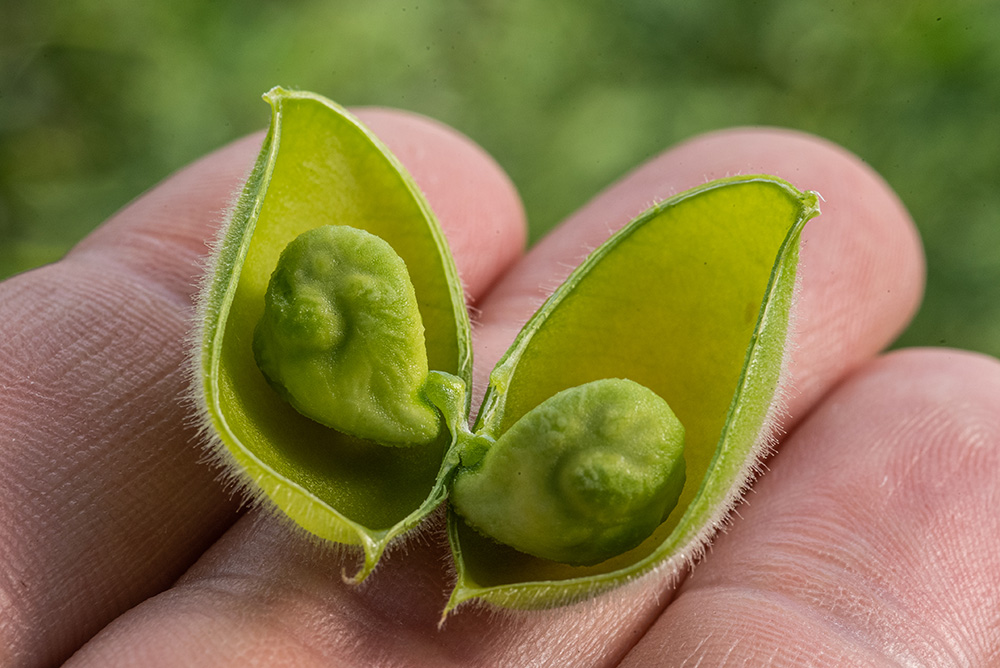







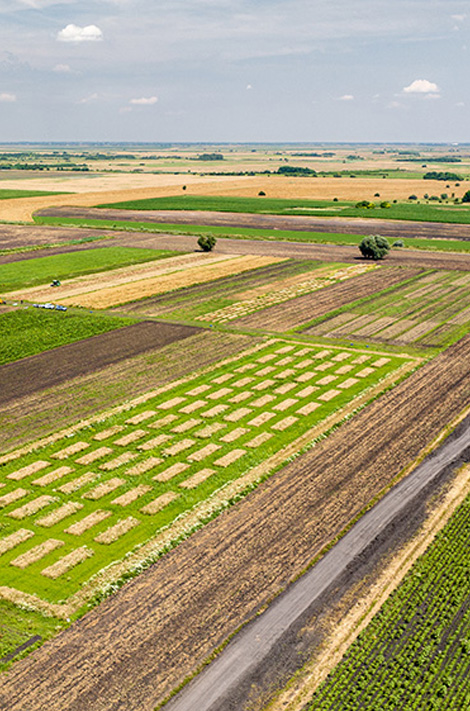
Subscribe to our newsletter for latest field trials and sustainable farming practices.
By submitting your email, you consent to subscribe to our e-newsletter to receive the latest LoginEKO updates. You can withdraw your consent at any time, more info here.
